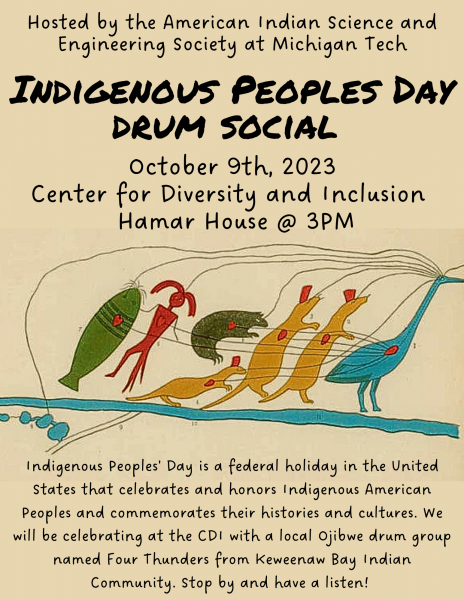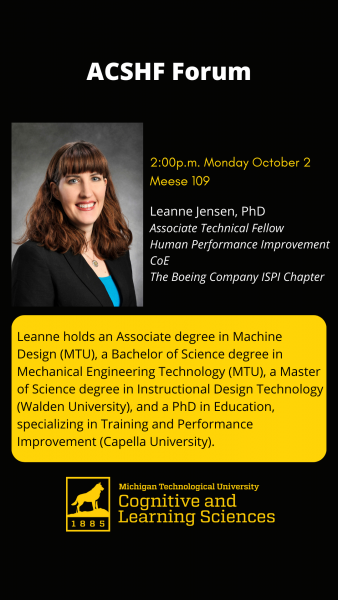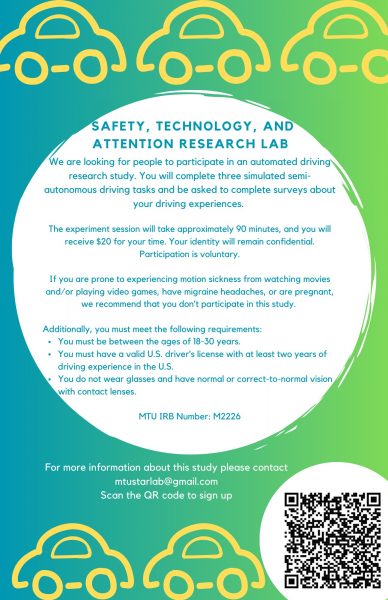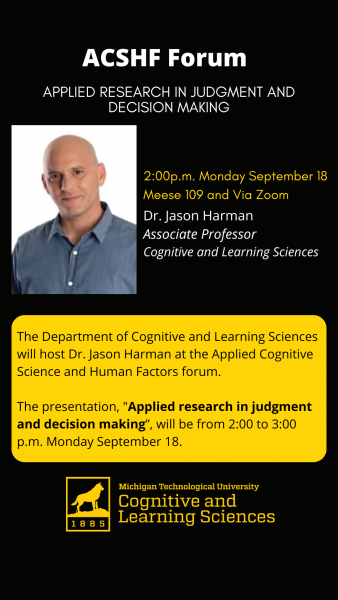In October, a group of MTU Human Factors students toured the BOSS SnowPlow headquarters and plant in Iron Mountain, MI. BOSS is a leader in the snow and ice management business with a growing product line and increased development of human-centered processes and equipment.
Katrina Carlson, a graduate student in the Applied Cognitive Science and Human Factors program, organized the trip for the department after completing a summer internship at BOSS. Students toured the BOSS plant, Product Development Lab, and Virtual Reality facilities to learn about the role of human factors in consumer product design as well as production technique and quality assurance.




